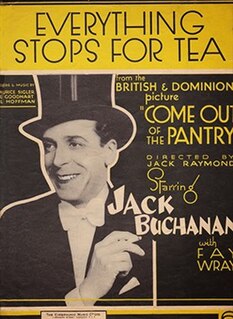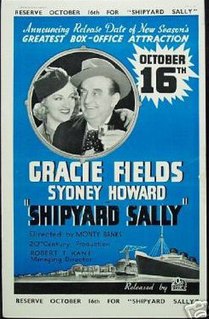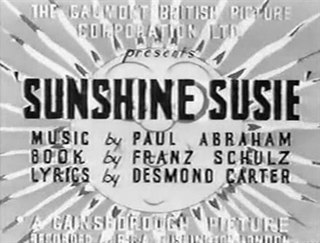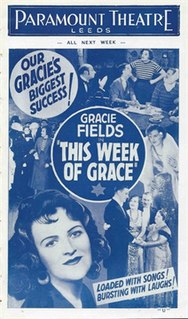Twenty to One was a British musical comedy first performed in 1935. The musical was a farce set around the world of horseracing. Bill Snibson (Lupino Lane), a bookmaker, joins an anti-gambling organisation in a fit of guilt. It ran for other four hundred performances at the Coliseum Theatre in the West End. Combined with provincial tours it ran for over a thousand shows. [1] It was written by Louis Arthur Rose. The music was composed by Billy Mayerl.
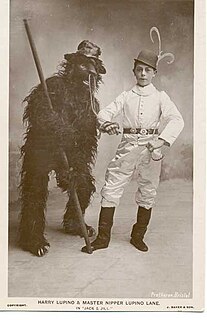
Lupino Lane was an English actor and theatre manager, and a member of the famous Lupino family, which eventually included his cousin, the screenwriter/director/actress Ida Lupino. Lane started out as a child performer, known as 'Little Nipper', and went on to appear in a wide range of theatrical, music hall and film performances. He is best known for playing Bill Snibson in the play and film Me and My Girl, which popularised the song and dance routine "The Lambeth Walk".

A bookmaker, bookie, or turf accountant is an organization or a person that accepts and pays off bets on sporting and other events at agreed-upon odds.

Gambling is the wagering of money or something of value on an event with an uncertain outcome, with the primary intent of winning money or material goods. Gambling thus requires three elements be present: consideration, risk (chance), and a prize. The outcome of the wager is often immediate, such as a single roll of dice, a spin of a roulette wheel, or a horse crossing the finish line, but longer time frames are also common, allowing wagers on the outcome of a future sports contest or even an entire sports season.
The lead character of Bill Snibson was such a success, that he was revived in 1937 for another musical Me and My Girl . This proved to be an even greater hit with its well-known song "The Lambeth Walk". It was adapted into a film in 1939.

Me and My Girl is a musical with music by Noel Gay and its original book and lyrics by Douglas Furber and L. Arthur Rose. The musical is set in the late 1930s and tells the story of an unapologetically unrefined cockney gentleman named Bill Snibson, who learns that he is the 14th heir to the Earl of Hareford. The action is set in Hampshire, Mayfair, and Lambeth.
"The Lambeth Walk" is a song from the 1937 musical Me and My Girl. The song takes its name from a local street, Lambeth Walk, once notable for its street market and working class culture in Lambeth, an area of London. The tune gave its name to a Cockney dance made popular in 1937 by Lupino Lane.

The Lambeth Walk is a 1939 British musical comedy film directed by Albert de Courville and starring Lupino Lane, Sally Gray and Seymour Hicks. It was an adaptation of the 1937 musical Me and My Girl, and was released under that title in the U.S. The film takes its British title from the play's best known song, The Lambeth Walk. The star of the musical, Lupino Lane, reprised his lead role in the film.


